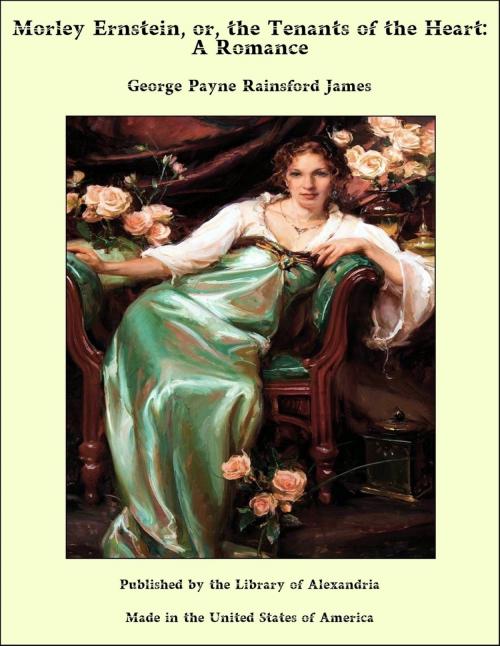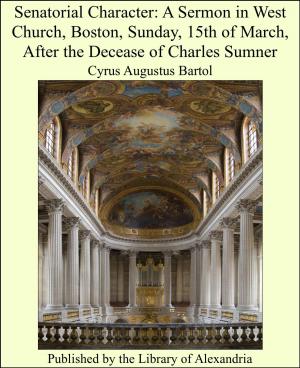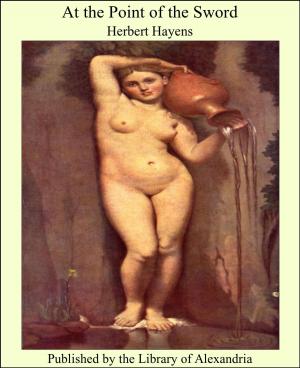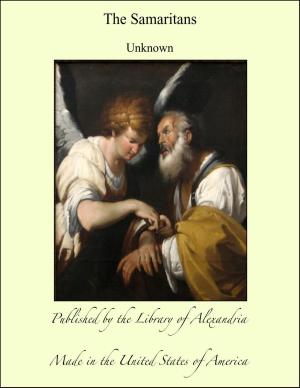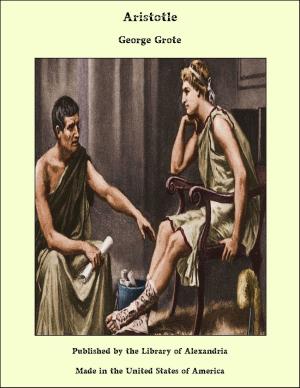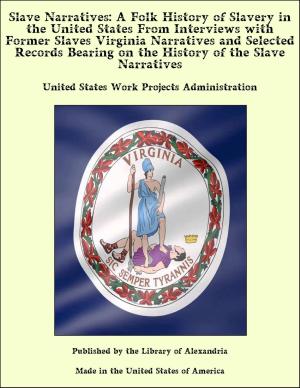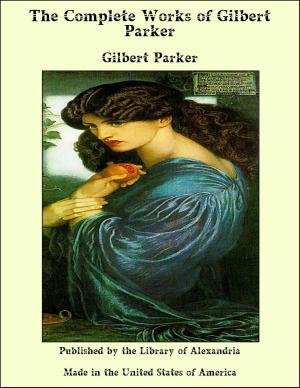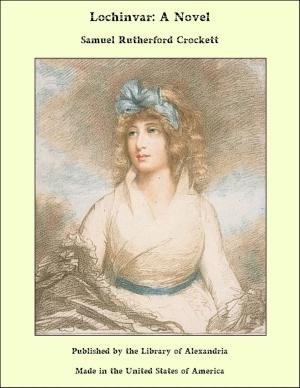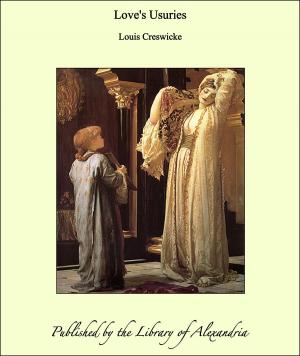Morley Ernstein, or, the Tenants of the Heart: A Romance
Nonfiction, Religion & Spirituality, New Age, History, Fiction & Literature| Author: | George Payne Rainsford James | ISBN: | 9781465607195 |
| Publisher: | Library of Alexandria | Publication: | March 8, 2015 |
| Imprint: | Language: | English |
| Author: | George Payne Rainsford James |
| ISBN: | 9781465607195 |
| Publisher: | Library of Alexandria |
| Publication: | March 8, 2015 |
| Imprint: | |
| Language: | English |
Pouvons-nous pas dire, qu'il n'y a rien en nous, pendant cette prison terrestre, purement, ni corporel ni spirituel? asks good old Montaigne, and certain it is that in many an act where we imagine the body alone takes part, the spirit has as great a share; and in many a thought where the mind seems to divest herself of clay, the impulse was given by the body, not the soul. But besides the contention between the corporeal and spiritual part of our nature, and the sort of swindling that goes on on both sides, he that looks into his own heart must acknowledge with him of old, that there seem to be two spirits within us. I do not only mean two spirits distinguished by their promptings to good and evil, but two principles separate in their nature, in their objects, and in their ultimate dwelling-place, the one tending to the earth, the other aspiring to the heavens; the one the principle of animal existence, the other the principle of immortal life; the one shared with the brutes that perish, the other that essence which raises us above them here and hereafter. What shall we call these two spirits? How shall we distinguish them, the one from the other, in speaking of them hereafter? Let us name the higher and the purer one, the spirit of the soul; and call the other, the spirit of the flesh; for both are distinct from mere intellect, which each uses as an agent, as each gains the ascendancy, or appeals to as a judge when the struggle is nearly equal. It is upon this struggle between these two principles that turns the greater part of each man's moral history. One of the strangest points in that contest is, that _the spirit of the soul_, as we have called the one, appeals less frequently to the intellect than her earthly sister, leaving it, in general, to the latter, as if for her uses in this earth the powers of intellect were given, while the soul obtains its impulses from other sources, and, marked out for a higher destiny, receives winged inspirations from the world to which it tends--faith, conviction, sentiment, feeling, conscience;--and oh, how often does that better spirit seize the happy moment to open the eyes which all our powers of mind could not unclose, and strip the world and all its pleasures of the delusions which no force of intellect has been equal to dispel! At the age of one-and-twenty years--It is a beautiful age, full of the spring, with all the vigour of manhood, without one touch of its decay; with all the fire of youth, without one touch of its feebleness! Oh, one-and-twenty! bright one-and-twenty!--wilt thou never come back to me again? No, never! The cord of the bow has been so often drawn that it has lost its elasticity; there have been a thousand flowers cast away that have withered in the dust of Time's sandy path; there have been a thousand fruits tasted that have left but the rind in my hand; there have been a thousand travel stains acquired that never can be washed off till the journey is done. That which has been lost, and that which has been gained, have both been gathered into the two baskets of the past; and whatever the future may have in store, one-and-twenty, with its many hopes, its few fears, its buoyancy of spirit, its elasticity of limb, its eagerness of expectation, its activity of pursuit, its aspirations, its desires, its faith, its confidence, its frankness, its garden of visionary flowers, and its atmosphere of misty light, can never, never come back to us, were we to whistle till we broke our hearts. No, no; in the sad arithmetic of years, multiply by what numbers you will, you can never get at one-and-twenty more than once.
Pouvons-nous pas dire, qu'il n'y a rien en nous, pendant cette prison terrestre, purement, ni corporel ni spirituel? asks good old Montaigne, and certain it is that in many an act where we imagine the body alone takes part, the spirit has as great a share; and in many a thought where the mind seems to divest herself of clay, the impulse was given by the body, not the soul. But besides the contention between the corporeal and spiritual part of our nature, and the sort of swindling that goes on on both sides, he that looks into his own heart must acknowledge with him of old, that there seem to be two spirits within us. I do not only mean two spirits distinguished by their promptings to good and evil, but two principles separate in their nature, in their objects, and in their ultimate dwelling-place, the one tending to the earth, the other aspiring to the heavens; the one the principle of animal existence, the other the principle of immortal life; the one shared with the brutes that perish, the other that essence which raises us above them here and hereafter. What shall we call these two spirits? How shall we distinguish them, the one from the other, in speaking of them hereafter? Let us name the higher and the purer one, the spirit of the soul; and call the other, the spirit of the flesh; for both are distinct from mere intellect, which each uses as an agent, as each gains the ascendancy, or appeals to as a judge when the struggle is nearly equal. It is upon this struggle between these two principles that turns the greater part of each man's moral history. One of the strangest points in that contest is, that _the spirit of the soul_, as we have called the one, appeals less frequently to the intellect than her earthly sister, leaving it, in general, to the latter, as if for her uses in this earth the powers of intellect were given, while the soul obtains its impulses from other sources, and, marked out for a higher destiny, receives winged inspirations from the world to which it tends--faith, conviction, sentiment, feeling, conscience;--and oh, how often does that better spirit seize the happy moment to open the eyes which all our powers of mind could not unclose, and strip the world and all its pleasures of the delusions which no force of intellect has been equal to dispel! At the age of one-and-twenty years--It is a beautiful age, full of the spring, with all the vigour of manhood, without one touch of its decay; with all the fire of youth, without one touch of its feebleness! Oh, one-and-twenty! bright one-and-twenty!--wilt thou never come back to me again? No, never! The cord of the bow has been so often drawn that it has lost its elasticity; there have been a thousand flowers cast away that have withered in the dust of Time's sandy path; there have been a thousand fruits tasted that have left but the rind in my hand; there have been a thousand travel stains acquired that never can be washed off till the journey is done. That which has been lost, and that which has been gained, have both been gathered into the two baskets of the past; and whatever the future may have in store, one-and-twenty, with its many hopes, its few fears, its buoyancy of spirit, its elasticity of limb, its eagerness of expectation, its activity of pursuit, its aspirations, its desires, its faith, its confidence, its frankness, its garden of visionary flowers, and its atmosphere of misty light, can never, never come back to us, were we to whistle till we broke our hearts. No, no; in the sad arithmetic of years, multiply by what numbers you will, you can never get at one-and-twenty more than once.
